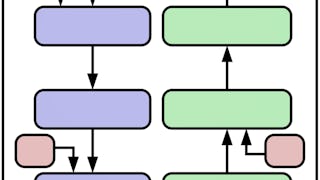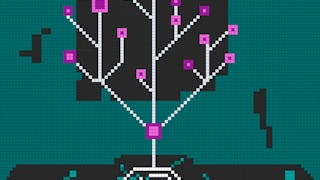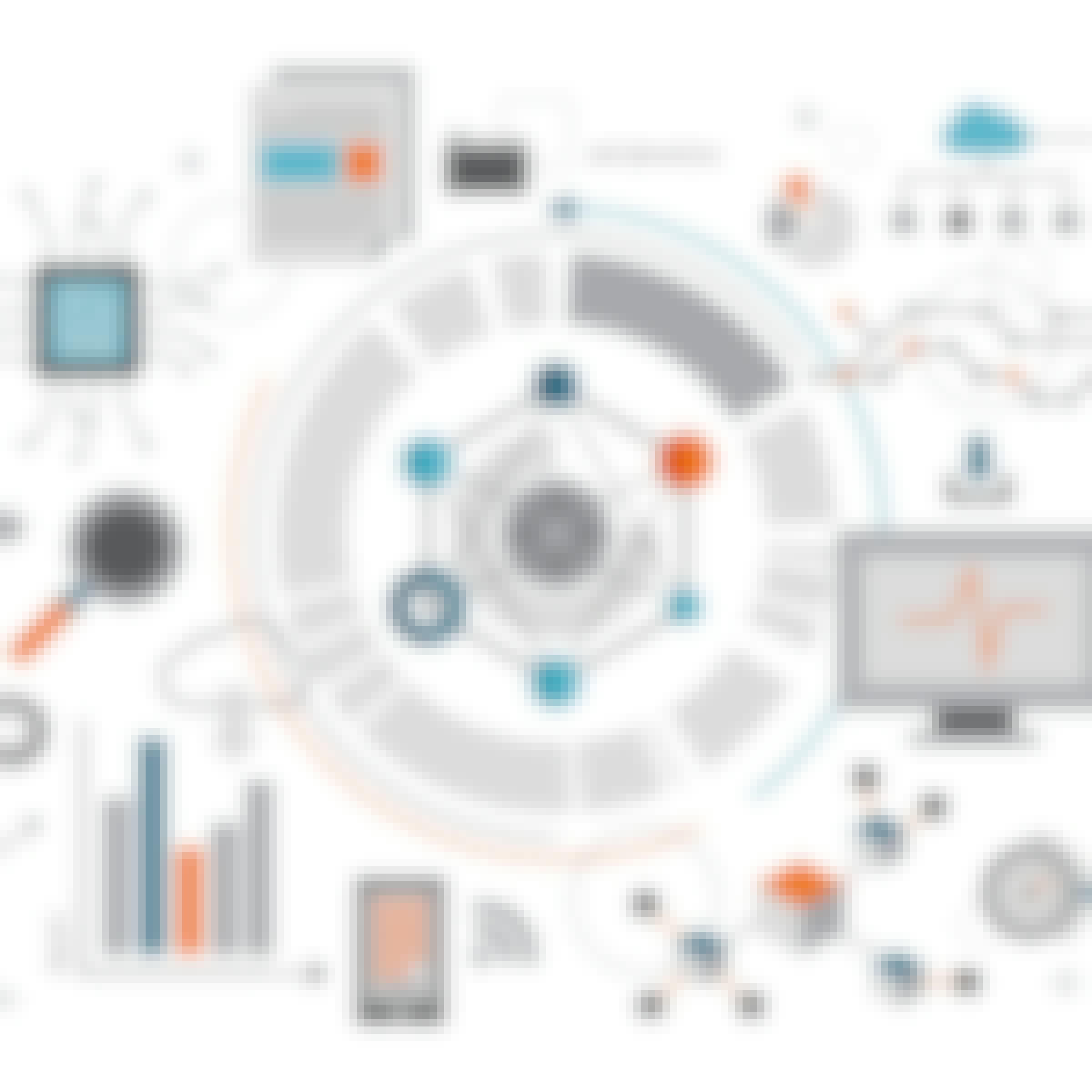- Browse
- Statistical Classification
Results for "statistical classification"
 Status: Free TrialFree TrialU
Status: Free TrialFree TrialUUniversity of Colorado System
Skills you'll gain: Computational Thinking, Data Analysis, C (Programming Language), Statistical Analysis, Programming Principles, Data Structures, Descriptive Statistics, Data Visualization Software
4.7·Rating, 4.7 out of 5 stars93 reviewsBeginner · Course · 1 - 4 Weeks
 Status: Free TrialFree TrialU
Status: Free TrialFree TrialUUniversity of Colorado System
Skills you'll gain: Estimation, Advanced Mathematics, Mathematical Modeling, Matlab, Linear Algebra, Statistical Methods, Predictive Analytics, Predictive Modeling, Applied Mathematics, Time Series Analysis and Forecasting, Probability, Statistical Inference, Probability & Statistics
Intermediate · Course · 1 - 4 Weeks
 Status: Free TrialFree TrialT
Status: Free TrialFree TrialTThe Chinese University of Hong Kong
Skills you'll gain: Entrepreneurship, Market Opportunities, Innovation, Business Planning, Business Leadership, Business Development, New Product Development, Financial Analysis, Business Strategy, Competitive Analysis, Market Research, Presentations, Financial Modeling, Fundraising
4.7·Rating, 4.7 out of 5 stars305 reviewsBeginner · Course · 1 - 3 Months
 Status: Free TrialFree TrialD
Status: Free TrialFree TrialDDuke University
Skills you'll gain: Responsible AI, Decision Tree Learning, Data Ethics, Regression Analysis, Artificial Intelligence, Machine Learning, Statistical Modeling, Python Programming, Artificial Intelligence and Machine Learning (AI/ML), Logistic Regression, Deep Learning, Artificial Neural Networks
4.7·Rating, 4.7 out of 5 stars24 reviewsIntermediate · Course · 1 - 4 Weeks
 Status: Free TrialFree TrialN
Status: Free TrialFree TrialNNortheastern University
Skills you'll gain: Health Informatics, Decision Support Systems, Process Mapping, Business Analytics, Predictive Analytics, Data-Driven Decision-Making, Customer experience strategy (CX), Artificial Intelligence and Machine Learning (AI/ML), Analytics, Applied Machine Learning, Healthcare Industry Knowledge, Performance Metric
4.4·Rating, 4.4 out of 5 stars84 reviewsIntermediate · Course · 1 - 4 Weeks
 Status: Free TrialFree Trial
Status: Free TrialFree TrialSkills you'll gain: Dimensionality Reduction, Unsupervised Learning, Deep Learning, Model Evaluation, Machine Learning Algorithms, Applied Machine Learning, Random Forest Algorithm, Feature Engineering, Artificial Neural Networks, Supervised Learning, Statistical Machine Learning, Anomaly Detection, Classification Algorithms, Performance Tuning
Intermediate · Course · 1 - 3 Months
 Status: FreeFreeA
Status: FreeFreeAAmazon Web Services
Skills you'll gain: Generative AI, Business Metrics, Machine Learning Methods, Applied Machine Learning, Artificial Intelligence and Machine Learning (AI/ML), AI Enablement, Machine Learning, Machine Learning Algorithms, Model Evaluation, Artificial Intelligence, Model Deployment, Key Performance Indicators (KPIs), Performance Measurement, Performance Metric, AI Product Strategy, Business Solutions
4.5·Rating, 4.5 out of 5 stars209 reviewsBeginner · Course · 1 - 4 Weeks
 Status: NewNewStatus: Free TrialFree Trial
Status: NewNewStatus: Free TrialFree TrialSkills you'll gain: Prompt Engineering, Vector Databases, Retrieval-Augmented Generation, Model Evaluation, Hugging Face, Generative AI, Dimensionality Reduction, Natural Language Processing, OpenAI API, Data Preprocessing, Embeddings, Classification Algorithms, Large Language Modeling, OpenAI, Text Mining, Applied Machine Learning, LLM Application, Statistical Machine Learning, Data Processing, Multilingualism
Intermediate · Specialization · 3 - 6 Months
 Status: Free TrialFree TrialD
Status: Free TrialFree TrialDDuke University
Skills you'll gain: Data Ethics, Exploratory Data Analysis, Data-Driven Decision-Making, Logistic Regression, Statistical Modeling, Web Scraping, Ggplot2, Model Evaluation, Data Visualization Software, Predictive Modeling, Tidyverse (R Package), Data Visualization, Data Analysis, Regression Analysis, Responsible AI, Data Transformation, R Programming, Data Science, Data Wrangling, Version Control
4.8·Rating, 4.8 out of 5 stars30 reviewsBeginner · Specialization · 1 - 3 Months
 Status: Free TrialFree TrialA
Status: Free TrialFree TrialAAmerican Psychological Association
Skills you'll gain: Regression Analysis, Correlation Analysis, Statistical Software, Statistical Analysis, Statistical Methods, Probability & Statistics, Quantitative Research, Data Analysis, Descriptive Statistics, Statistical Hypothesis Testing
Beginner · Course · 1 - 3 Months
 Status: Free TrialFree TrialU
Status: Free TrialFree TrialUUniversity of Michigan
Skills you'll gain: Data Visualization, Exploratory Data Analysis, Plot (Graphics), Data Presentation, Ggplot2, R (Software), Statistical Visualization, R Programming, Data Visualization Software, Data Analysis, Scatter Plots, Graphic and Visual Design, Histogram, Tidyverse (R Package), Public Administration, Trend Analysis, Policy Analysis
5·Rating, 5 out of 5 stars11 reviewsIntermediate · Course · 1 - 4 Weeks
 Status: Free TrialFree TrialU
Status: Free TrialFree TrialUUniversity of Colorado Boulder
Skills you'll gain: Entrepreneurial Finance, Business Planning, Design Thinking, Business Modeling, Entrepreneurship, Target Market, Persona Development, Systems Thinking, Value Propositions, New Product Development, Technical Management, Financial Statements, Growth Strategies, Business Ethics, Market Opportunities, Intellectual Property, Gap Analysis, Financial Modeling, Engineering Management, Engineering
Build toward a degree
4.5·Rating, 4.5 out of 5 stars33 reviewsBeginner · Specialization · 3 - 6 Months
In summary, here are 10 of our most popular statistical classification courses
- Data Analysis and Representation, Selection and Iteration: University of Colorado System
- Linear Kalman Filter Deep Dive (and Target Tracking): University of Colorado System
- Entrepreneurship: The Chinese University of Hong Kong
- Interpretable Machine Learning: Duke University
- Business Application of Machine Learning and Artificial Intelligence in Healthcare: Northeastern University
- Advanced ML Algorithms & Unsupervised Learning: Packt
- Exploring Artificial Intelligence Use Cases and Applications: Amazon Web Services
- Applied NLP and Generative AI: Packt
- Data Science with R: Duke University
- Measures of Correlation and Contingency: American Psychological Association










